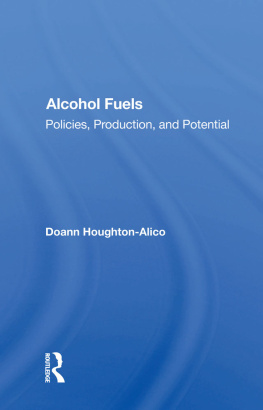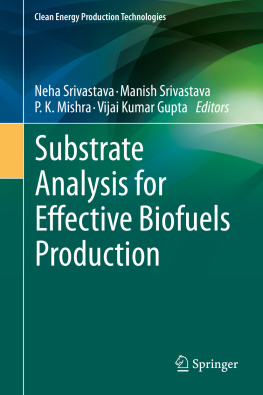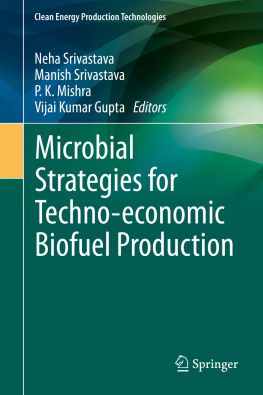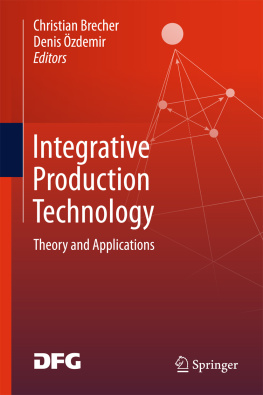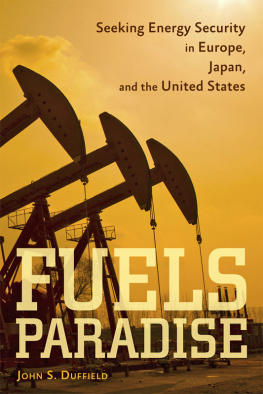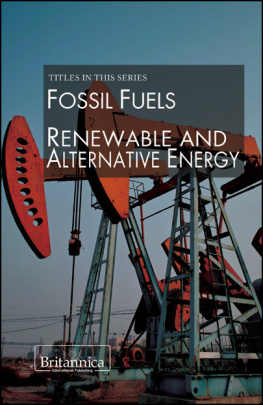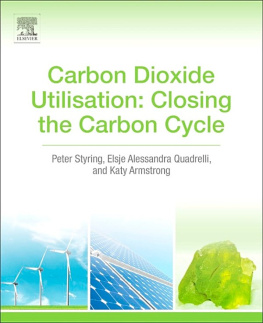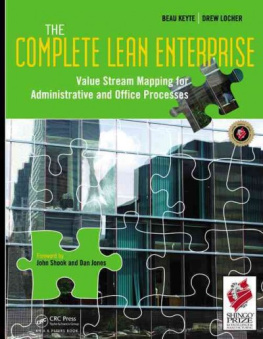Alcohol Fuels
Also of Interest
* Renewable Natural Resources: A Management Handbook for the Eighties , edited by Dennis L. Little, Robert E. Oils, and John Gray
Energy from Biological Processes , Office of Technology Assessment, U.S. Congress
Energy Transitions: Long-Term Perspectives , edited fay Lewis J. Perelman, August W. Giebelhaus, and Michael D. Yokell
* Energy Futures, Human Values, and Lifestyles: A New Look at the Energy Crisis , Richard C, Carlson, Willis W. Harman, Peter Schwartz, and Associates
* The Economics of Environmental and Natural Resources Policy , edited by J. A. Butlin
Energy, Economics, and the Environment: Conflicting Views of an Essential Interrelationship , edited by Herman E. Daly and Alvaro F. Umaa
Energy Analysis and Agriculture: An Application to U.S. Corn Production , Vaclav Smil, Paul Nachman, and Thomas V. Long II
Solar Energy in the U.S. Economy , Christopher J. Pleatsikas, Edward A. Hudson, and Richard J. Goettle IV
The Forever Fuel: The Story of Hydrogen , Peter Hoffmann
Agriculture as a Producer and Consumer of Energy , edited by William Lockeretz
*Available in hardcover and paperback.
Westview Special Studies in Natural Resources and Energy Management
Alcohol Fuels: Policies, Production, and Potential Doann Houghton-Alico
Since the 1973 OPEC oil crisis, the rise of imported crude oil prices, and the questionable availability of petroleum supplies, the United States has been forced to investigate liquid-fuel alternatives. Alcohol fuels, including methanol and ethanol, offer the most realistic near-term potential as gasoline extenders or substitutes.
This book is the most current and complete source of information to date on alcohol fuels. Covering domestic policy and legislation, production processes, uses, and research and development, as well as international production and use, and presenting specific dataon, for example, the use of alcohol fuel in vehicles with spark-ignition and diesel engines, as a chemical feedstock, and in utility boilers and fuel cellsit is directed at research scientists, policymakers, and potential investors and producers. The appendixes include technical reference data, a bibliography, a list of information sources, and a glossary.
Doann Houghton-Alico, president of Technical Information Associates, Inc., is coauthor of Fuel From Farms: A Guide to Small-Scale Ethanol Production published by the Solar Energy Research Institute/ Department of Energy. Her previous positions include project consultant to government and research institutions, and public interest lobbyist and legislative analyst in Washington, D.C.
Alcohol Fuels
Policies, Production, and Potential
Doann Houghton-Alico
First published 1982 by Westview Press, Inc.
Published 2018 by Routledge
52 Vanderbilt Avenue, New York, NY 10017
2 Park Square, Milton Park, Abingdon, Oxon OX14 4RN
Routledge is an imprint of the Taylor & Francis Group, an informa business
Copyright 1982 Taylor & Francis
All rights reserved. No part of this book may be reprinted or reproduced or utilised in any form or by any electronic, mechanical, or other means, now known or hereafter invented, including photocopying and recording, or in any information storage or retrieval system, without permission in writing from the publishers.
Notice:
Product or corporate names may be trademarks or registered trademarks, and are used only for identification and explanation without intent to infringe.
Library of Congress Cataloging in Publication Data
Houghton-Alico, Doann.
Alcohol fuels.
(Westview special studies in natural resources and energy management)
Bibliography: p.
Includes index.
1. Alcohol as fuel. I. Title. II. Series.
TP358.H68 338.4'7662669 82-2029
ISBN 13: 978-0-367-01891 7 (hbk) AACR2
To Daya, Chad and Peter
Hope is the thing with feathers
That perches in the soul,
And sings the tune without the words
And never stops at all....
Emily Dickinson
Information presented in this book about the alcohols--specifically, methanol, ethanol, and butanolranges from history to state-of-the-art technology, production to use, domestic policies to international activities. The purpose is to examine the potential of nonpetroleum-based liquid fuels and chemical feedstocks. Alcohol fuels present the most practical domestically available alternative to petroleum-based products.
For several years there has been discussion about depleting resources. But it wasn't until the 1973 Organization of Petroleum Exporting Countries (OPEC) embargo and ensuing rising prices of crude oil that the realities of such shortages hit the world, particularly the American public. (The United States has an annual per capita energy consumption rate of 332 106 Btu compared to a world average of 60 106 Btu.) The shortages in 1973 were politically and economically motivated; nevertheless, they reflect what actual resource shortages would be like.
Crude oil is one type of fossil fuel, which still has an important role to play in world energy development. However, fossil fuels are basically nonrenewable. Enhanced recovery techniques and the discovery of new fields does not change that fact. They merely permit more time for the finding of alternatives. The effect of political-economic power plays must not be forgotten. One piece of the jigsaw puzzle of world peace is most certainly predicated on a continuing international supply of energy resources. Alcohol fuels present a reasonable alternative.
Doann Boughton-Alico
Denver, Colorado
The author accepts full responsibility for the content of this book, but nevertheless wishes to recognize the important contributions made by others. Jacqueline Sharkey, who served as editor, and Roxanne Oberst, who did the word processing, deserve particular thanks for their long hours and patient work.
Very special thanks go to Sherry Cole, Andrew Moriarity, Joe Nebolon, Dennis Orr, and Steve Rubin, who contributed in many ways.
I owe a particular debt of gratitude and respect to my technical reviewers for their areas of expertise: John Alico, Alico Engineers and Appraisers, Inc.; Harvey Blanch, University of California at Berkeley; Ron Bullard, Western Energy; Alicia Compere and William Griffith, Oak Ridge National Laboratory; David Locke, Queens College; Randall Noon, Kansas Energy Office; Robert Merten, Colorado Gasohol Promotion Committee; and Thomas Reed, Solar Energy Research Institute.
I would also like to acknowledge my research assistants, Marcy Dunning, Sandra Goldthorpe, and David Smythe.
Doann Houghton-Alico
1
Policy Issues
The stages of civilization are defined by their tools, e.g., the Stone Age, the Bronze Age. Tools are created by using available energy sources--such as human labor or fire--and natural resources. These tools are then used to further exploit the energy sources and natural resources to move the civilization to the next stage. Advances have occurred as a geometric progression, with the past century presenting an explosion of tools and technologies: today, machines exist that can perform a diverse and large amount of work; there are also machines to tell those machines what to do.

